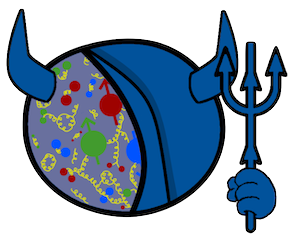Speaker
Description
Spin asymmetry and cross section measurements in semi-inclusive hadroproduction grant access to a variety of parton distribution and fragmentation functions. Such measurements of dihadron production additionally constrain Dihadron Fragmentation Functions (DiFFs), and the extra degree of freedom from the second hadron facilitates access to some of the parton distribution functions. At CLAS kinematics, subleading-twist parton distributions are accessible in dihadron beam-spin and target-spin asymmetries, and a comparison of semi-inclusive scattering off a proton and a deuteron probes their flavor dependence. The future Electron-Ion Collider (EIC) with a transversely polarized proton will access several transverse-momentum dependent distributions such as Sivers and transversity. On the fragmentation side, numerous DiFFs are accessible, and their partial wave expansion probes correlations between the angular momentum of the fragmenting parton with that of the observed dihadron. Furthermore, different hadron channels probe flavor dependence in fragmentation. Together with CLAS, the EIC as well as CLAS with the proposed 22 GeV accelerator upgrade will cover a broad range of $Q^2$ and $x$, allowing for the study of evolution effects of all of these functions. This presentation will summarize the possibilities of these measurements at CLAS and at future experimental facilities.

